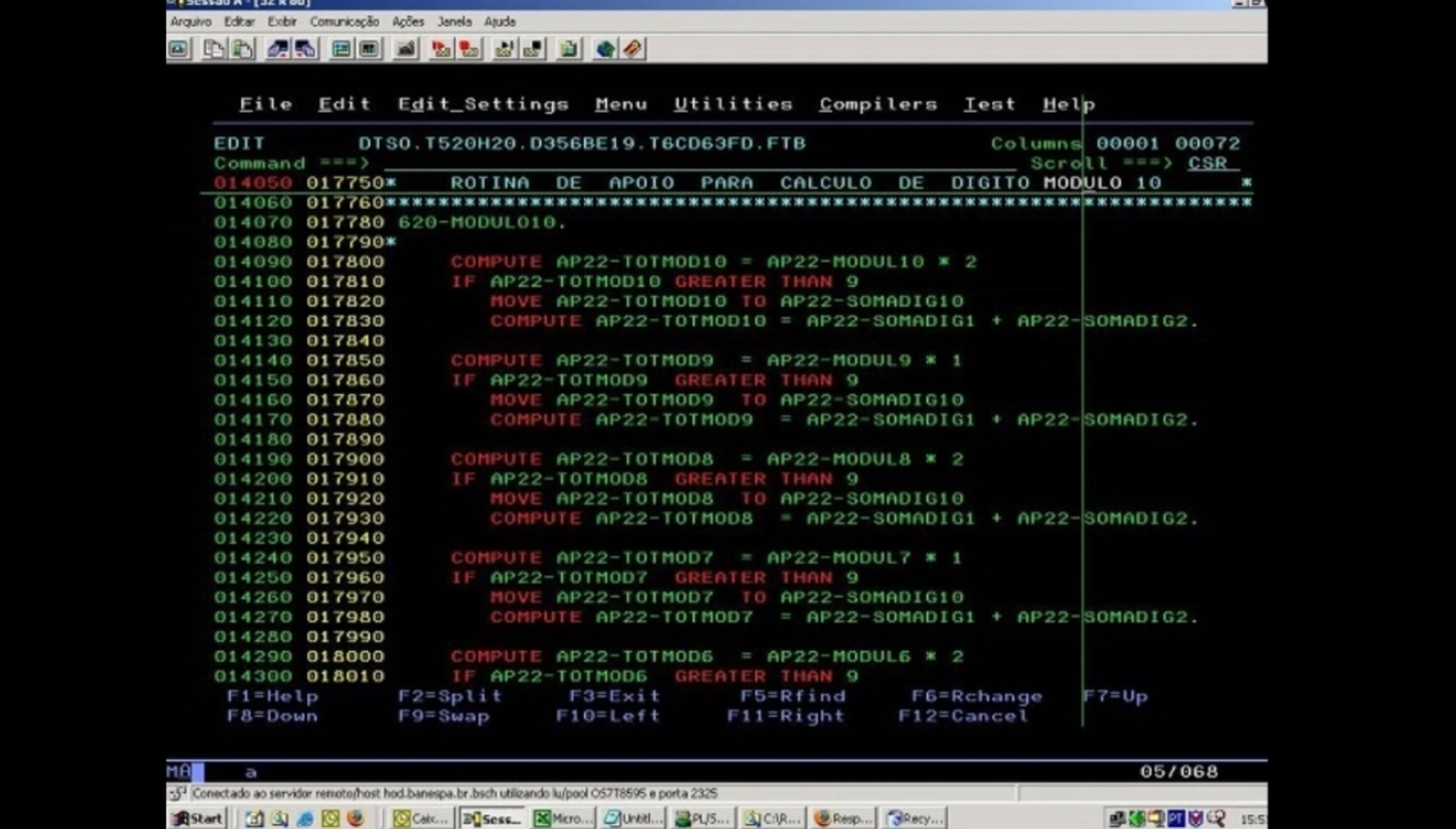On April 11, 1978, Microsoft announced the release of COBOL-80a version of language longest-lived programming tool still in use, COBOL. On the occasion of his 45th birthday, it’s time to give him the recognition he deserves.
Bill Gates already stated it: “I don’t know what languages there will be in the future, but for sure COBOL will still be there.”.
Of course he was not wrong, since in general, it is estimated that around 80% of global financial transactions are still processed through systems based on this language. “Even though this programming language is 45 years old, it is still used to handle vast amounts of data and financial transactions around the world”explains Félix Llorente García, SAP Project Manager COBOL project manager.
To give you a slight idea, It is estimated that around 300 billion lines of code are written in COBOL worldwide.

What is COBOL-80 and why is it so relevant today despite its longevity?
COBOL-80 —which is what is being discussed today on the occasion of its anniversary— is a version of the COBOL programming language (Common Business Oriented Language) which was developed by Microsoft in 1978 (its third computer language product after BASIC-80 and FORTRAN).
COBOL It is one of the oldest programming languages still in use today. The original was created in 1959 for use in commercial and government applications. Despite being an old language, the new version it remains relevant today due to its large number of legacy applications that are still in use.
This ‘new’ from 1978 included some improvements and features compared to previous versions of COBOL. Some of the enhancements that were incorporated into COBOL-80 include:
- Random access file handling improvements
- Support for recursive subroutines
- Sequential file handling improvements
- Support for online comments
The reality is that generally speaking, COBOL-80 is not a very different version of COBOL—most programs written in this version also work in earlier editions. Yes indeed, these improvements made the language more powerful and easier for programmers to use.
Many companies and organizations have very critical systems that have been developed in COBOL and switching to a more modern programming language would be costly and risky. Instead, they prefer to keep their existing systems and continue to develop on COBOL-80 now.
Furthermore, the legacy of this programming language has allowed many people who have been working on COBOL applications for decades to become experts in the language. This means there are still plenty of programmers available to maintain and update existing systems.
As companies look to modernize their systems, some are choosing to keep their existing applications and add new functionality through APIs and web services. This strategy allows them to maintain their investment while taking advantage of new technologies.
Some of the companies and organizations still using COBOL-80 include:
- Financial Institutions: Many banks and insurance companies have critical systems built on COBOL-80. For example, JP Morgan Chase and American Express still use systems based on this language.
- Government agencies: especially in the United States still use systems based on COBOL-80. For example, the Internal Revenue Service (IRS) and the United States Social Security Administration (SSA) use it.
- Telecommunications companies: Verizon and AT&T still use COBOL-80 based systems to handle their billing and customer service.
- Transportation companies: Amtrak and Delta Air Lines also have critical systems developed in this language.
“Demand for COBOL-80 programmers remains high due to the large number of legacy systems that still require maintenance and upgrades”qualifies Llorente García.
COBOL-80 and artificial intelligence: a relationship with potential benefits
If novelties and new technologies continue to be included, The application of artificial intelligence (AI) in existing systems based on COBOL-80 could have several advantages.
In summary, it could offer several advantages, including data analysis, task automation, performance improvement, fraud detection, and predictive maintenance. “This could help companies and organizations to maintain and modernize their existing systems while benefiting from new AI technologies”adds Llorente Garcia.
- Data analysis: Many COBOL-80 systems handle large amounts of data, and AI could be used to analyze and extract valuable information from all of this.
- Task Automation: Could also be used to automate repetitive tasks in COBOL-80 systems, such as data entry or report generation.
- Performance improvement: It could also be used to optimize the performance of existing COBOL-80 systems, improving the speed and efficiency of data processing.
- Fraud detection: For example, it would be very useful to detect suspicious patterns or fraud in COBOL-80 systems that handle financial transactions.
- Predictive Maintenance: AI could be used to monitor and predict problems in COBOL-80 systems, allowing maintenance teams to anticipate and fix problems before they occur.
“The recent COVID-19 pandemic has highlighted the importance of secure and reliable data processing systems, which has reaffirmed the relevance of COBOL-80 in the business world”ends Llorente Garcia.
COBOL-80 remains relevant today due to its extensive use in critical systems and its proven stability, efficiency, and security.. While it may be considered an old programming language, it is still essential for many businesses and organizations around the world.




![[Img #74661]](https://thelatestnews.world/wp-content/uploads/2024/12/The-power-of-ultrasound-150x150.jpg)











![[Img #74661]](https://thelatestnews.world/wp-content/uploads/2024/12/The-power-of-ultrasound-300x200.jpg)

